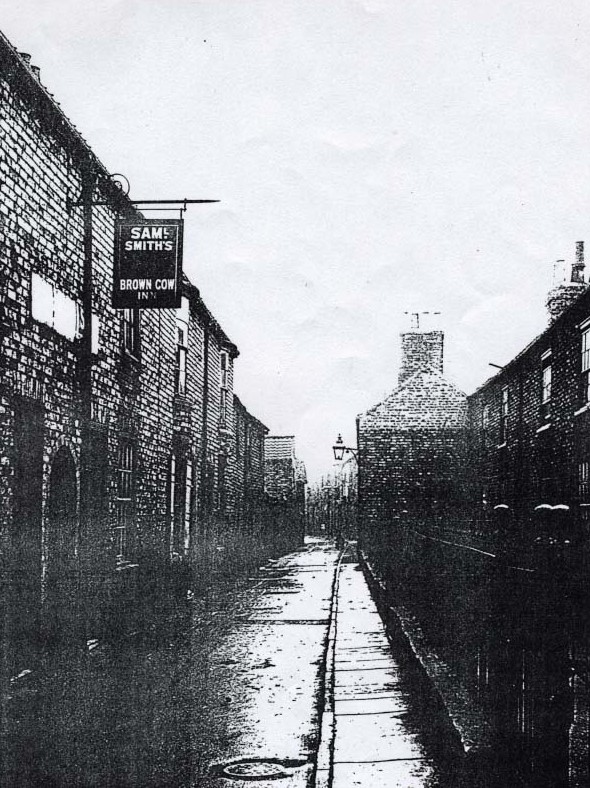I think it is a fair statement to say we all have favourite ancestors, whether that be due to the fact they were an unbeatable brick wall for years, had a very fortunate or unfortunate life or you just for some reason connect with them.
George Alfred Dale was one of my first favourites. He led a tragically short life, dying at the age of 20, sacrificing it for his country in the First World War. It fascinated me that I had not heard about the war hero who I shared a name with.
His story began in March 1898, when he was born in the City of York, to Alfred and Mary Jane Dale (formerly Fell). He was the youngest of eight children; one of his siblings sadly died in infancy. He was baptised in the Parish of St. Dennis and St. George on 27 March 1898. The family were living at 33 Duke of York Place near Long Close Lane around the time of his birth. Alfred worked as a glassblower and Mary Jane undertook domestic duties.

Loss would define the younger days of George’s life. Alfred Dale, his father, would die on 30 Aug 1906, aged 47 years. He died of a haemorrhage caused by tongue cancer. He was buried in a public grave on 1 Sep 1906.

Mary Jane was now a widow, aged 49, left with six children to provide for. Her eldest daughter Frances had left home and married George Garnett by this point. Times were mostly likely very tough for her, so she made the decision to move her family to the area surrounding the thriving industrial towns of Batley and Dewsbury.
This move caused George to lose the area he was used to, his friends and his extended family. He had lost his father and his home. The family had moved to Dewsbury by 1908 when Mary Jane remarried. She married George Marshall, a bachelor, on 22 Aug 1908 at St Phillip’s Church in Dewsbury.
By 1911, the family had moved to 40 Primrose Hill in Soothill, Batley. George lived with his mum, step-dad and older brothers Albert Victor and Arthur (my Great-Great Grandad). Albert Dale and George Marshall worked in a Coke Plant. Arthur Dale worked as a labourer in a cloth mill. Mary Jane remained at home with the thirteen-year-old George where she continued to undertake domestic duties.
After a prolonged period of international tension, the First World War broke out in the summer of 1914. George enlisted shortly after war was declared, at the age of 16 years.
He was a member of Duke of Wellington’s (West Riding Regiment) 2/5th Battalion. Originally formed as a home service unit, George would travel the whole country before he arrived in France in early 1917.
During his service, he fought in various battles, including the Battle of Bullecourt (May 1917), The Cambrai Operations (November 1917) and the first stages of the First Battles of the Somme (1918).

He wrote and signed an informal will on 12 May 1917, where he leaves his entire estate to his mother. The documents from his will state that he last had leave on 5 May 1917.
I think from the tone and title you can see where the story is going. George was wounded on 28 March 1918. He was admitted to a hospital in Rouen the following day and passed away on 31 March. His mother and all siblings who reached adulthood outlived him. He was buried at the St. Sever Cemetery Extension in Rouen. He was awarded the British War Medal and the Victory Medal.

I think we must all acknowledge that he was not just another soldier that died in the war. He was a person who had a life albeit a short one. He was a brother, son, grandson. He had friends, fears and a personality. He had dreams which he never got the opportunity to at least try to achieve. I will always remember George Alfred Dale in his entirety.
He is one of my favourite Great-Great-Great Uncles.
I would like to thank members of the Batley History Group for providing an excellent online roll of honour. It was a great help in my research of George’s war service. The online roll of honour can be found at this link: http://www.batleysrollofhonour.com/.

Thats is really interesting and he was a a war hero.